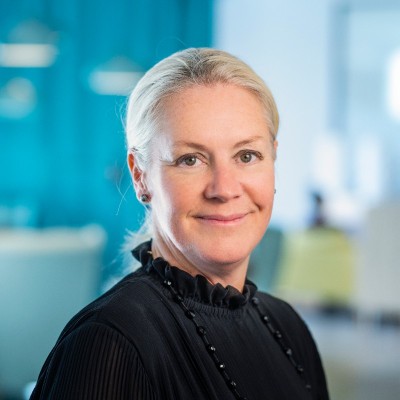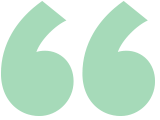In this exclusive interview with Pia Heidenmark Cook, a Senior Advisor for IKEA, we learned the financial benefits of corporate sustainability and why change management is important in our fight against climate change. As a popular sustainability speaker, Pia regularly aids companies’ in their environmental goals, using the knowledge she gained as IKEA’s former Chief Sustainability Officer.
Sustainability is now top of the agenda for many enterprises, but for some the fight to build a more sustainable world started years ago. To learn more about what business leaders can do to accelerate their sustainability initiatives, we spoke with Pia Heidenmark Cook, a sustainability champion, esteemed speaker, and former Chief Sustainability Officer at IKEA.
You can find out more about what she had to say below. But for even more insights from Pia, check out her profile on TED here. To book Pia for a talk, head to Champion Sustainability Speakers.
Meet Pia Heidenmark Cook
Senior Advisor for IKEA
Pia Heidenmark Cook is non-executive director in NGO and company boards across various business sectors, including hospitality, food and materials innovation. She is a lecturer and keynote speaker, mentor and senior advisor to IKEA. She was Chief Sustainability Officer (CSO) at Ingka Group (IKEA) between 2017-2021. There, Pia led a team of sustainability professionals in the global office, as well as sustainability experts integrated across the retail, shopping Centre and customer fulfilment business across 30 markets in Europe, Asia Pacific and North America, and was a member of the executive retail management team.

CEO.digital: What can businesses learn from IKEA’s approach to corporate sustainability?
Pia Heidenmark Cook: “I think every company needs to go on their own journey because every company is different.
“But sustainability is not a side business, it’s not a side activity, it’s not a ‘do good and feel good’ activity. Those are the potential outcomes, but should really not be the reason why you do it.
“It’s because you understand the impact you’re having on the planet and its people, on society. You also see everything going on with climate change, inequality, biodiversity loss, you name it, how that will impact you as your company and the future [profit and loss] of the company.
“Use that understanding to really make a plan and dare to set daunting targets, because I think you have to set targets that are reachable, but still reachable with huge effort because that’s what’s required. So I think setting those 100% goals shows your organisation that you cannot opt out, you cannot choose to be the business that’s not involved.
“We all need to engage leaders and co-workers at every level.”
What are the financial benefits of corporate sustainability and ESG?
“I think there are many different benefits because sustainability is so broad.
“It depends on the business you’re in. But for [IKEA], it’s about how we build our buildings, where we place them, how we create the supply chain, how we design the products, how we meet them, interact with the customers, how we get stuff home to people.
“There’s quite an obvious case for becoming energy efficient in operations, both at factory level and store level. It means you spend less, maybe not the first few months, but you do spend less on your energy bills, which is often quite a big cost.
“For example, our decision to only use electric or zero emissions [vehicles] for our home delivery services operationally increased costs. But many cities around the world don’t want diesel trucks going into their city centres, and our customers live in city centres, and we need to get our stuff to them. So, by starting now, we are preparing for that.”
“So yes, short term [sustainability] might drive costs but in the long term, it means we stay in business.”

I really hope more companies move away from thinking about sustainability as risk legislation, doing good charity, and really start to see the Social Development Goals and Planetary Boundaries as the framework we need to operate in.
Pia Heidenmark Cook Senior Advisor for IKEA
What message do you have for businesses and organisations who are not already making sustainable changes?
“Tick tock, tick tock – especially if you are in Northern Europe and the Western economy.
“I have full respect that many other countries deal with a lot of poverty, and struggle to put food on the table and take care of its citizens. But we also know that these are the countries and citizens that are the most negatively impacted by climate change.
“You may be in a sector that is not fully future-proofed because the product you have built was perfect 100 years ago, 50 years ago, ten years ago. But we know we need to shift away from coal and fossil fuel, we need to shift away from meat.
“It’s kind of obvious when you look at the science.”
“I really hope more companies move away from thinking about sustainability as risk legislation, doing good charity, and really start to see the Social Development Goals and Planetary Boundaries as the framework we need to operate in.
“It has limitations, but through limitations you can really inspire ingenuity, entrepreneurship and start to find solutions. There are solutions, I think we just need to do them at scale, at speed and we need to invest more money. There’s too much money still going into the old and too little going to the new.
“I really hope that very soon, there will be few companies that are sitting and waiting and thinking that this has to do with someone else and not them, because it has to do with all of us.”

Having really good people who know how to do these fantastic calculations is so important, because some people won’t act if they don’t see the numbers. Others may follow their heart, so you really need to use the whole toolbox – the brain, the heart and the stomach.
Pia Heidenmark Cook Senior Advisor for IKEA
If you could give your younger self one piece of advice, what would it be?
“I think what I’ve learned, is that sustainability is about change management.
“It’s not always about finding the most technical solution, it’s the human aspect of getting people to buy into it and want to be part of it.
“I don’t think I fully realised at the beginning of my career how much it is really about change management. Of course you need competence and expertise, but also surround yourself with really skilled people.
“Having really good people who know how to do these fantastic calculations is so important, because some people won’t act if they don’t see the numbers. Others may follow their heart, so you really need to use the whole toolbox – the brain, the heart and the stomach.
“It’s fundamentally about change management. I don’t know if that’s what I would have told my younger self, but definitely it’s what I’ve learned over the last 25 years.”






